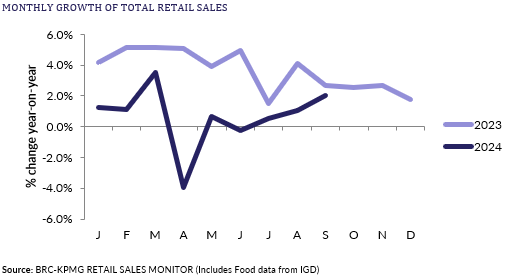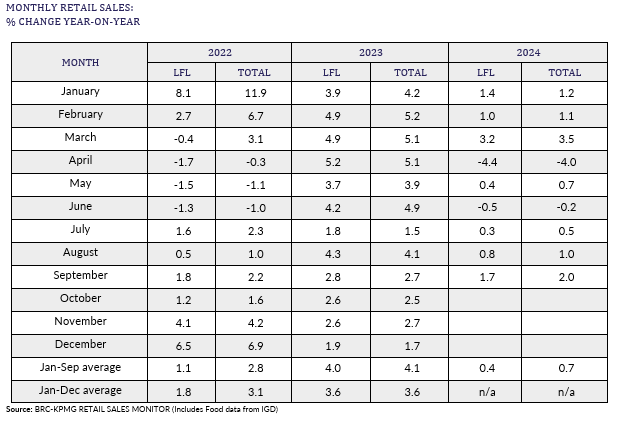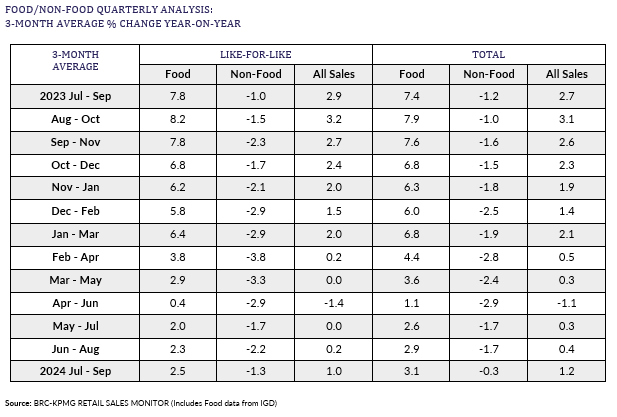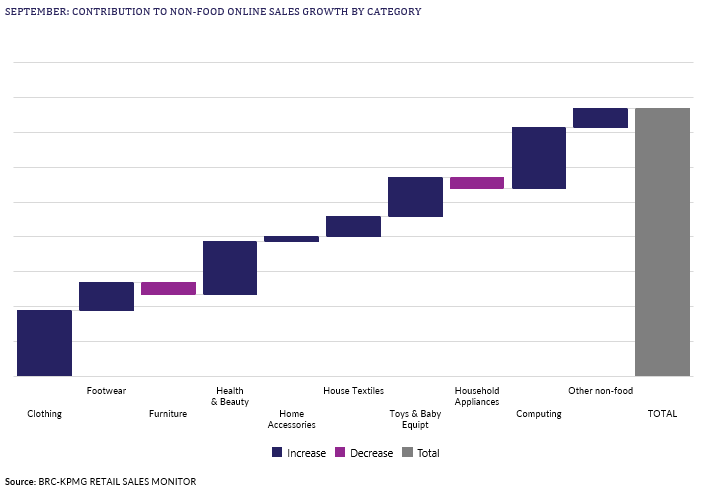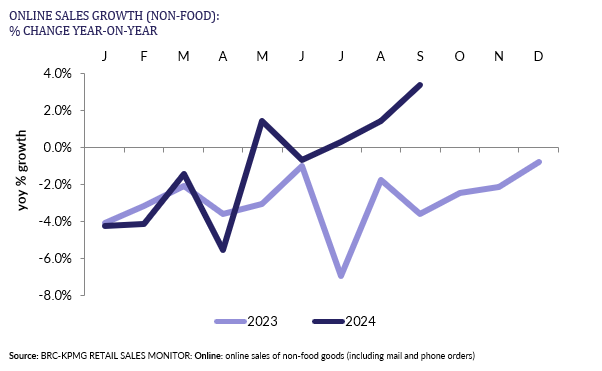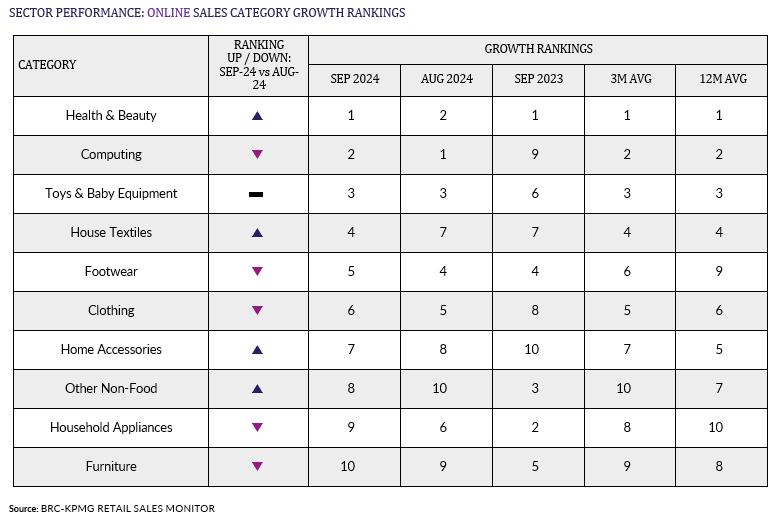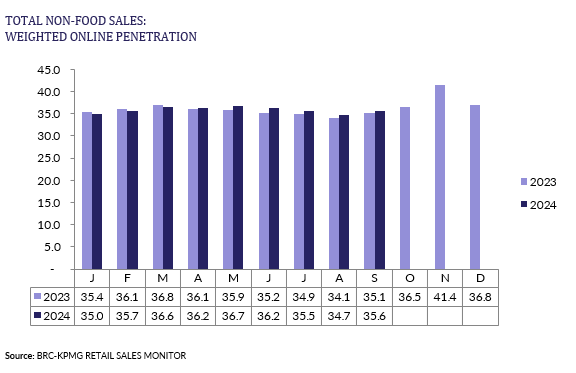Covering the five weeks 25 August – 28 September
2024
-
UK Total retail sales
increased by 2.0% year on year in September, against a growth
of 2.7% in September 2023. This was above the 3-month average
growth of 1.2% and the 12-month average growth of 1.1%.
-
Food sales increased 3.1% year on year over
the three months to September, against a growth of 7.4% in
September 2023. This is below the 12-month average growth of
4.4%. For the month of Sep, Food was in growth
year-on-year.
-
Non-Food sales decreased 0.3% year on year
over the three-months to September, against a decline of 1.2%
in September 2023. This is above the 12-month average decline
of 1.7%. For the month of September, Non-Food was in growth
year-on-year.
-
In-store Non-Food sales over the three months
to September decreased 1.5% year on year, against a growth of
0.3% in September 2023. This is above the 12-month average
decline of 1.9%.
-
Online Non-Food sales increased by 3.4% year
on year in September, against an average decline of 3.6% in
September 2023. This was above the 3-month average increase of
1.9% and above the 12-month average decline of 1.1%.
- The online penetration rate (the proportion
of Non-Food items bought online) increased to 35.6% in September
from 35.1% in September 2023. This was below the 12-month average
of 36.4%.
Helen Dickinson OBE, Chief Executive
of the British Retail Consortium, said:
“Retail sales saw the strongest growth in six months as non-food
performed better than expected. As Autumn rolled out across the
UK, shoppers sought to update their wardrobes with coats, boots
and knitwear. The start of the month also saw a last-minute rush
for computers and clothing for the new academic year. Ongoing
concerns of consumers about the financial outlook kept demand low
for big ticket items such as furniture and white goods.
“The coming months are crucial for the economy as retailers enter
the “Golden Quarter”. But in the face of weak consumer confidence
and the continued high burden of business rates, retailers'
capacity for further investment is limited. As a result,
retailers are holding their breath ahead of the Budget as they
work out their investment strategies for the coming year.
Decisive action from the Chancellor, such as introducing a 20%
Retail Rates Corrector, would help to drive investment and
economic growth up and down the country.”
Linda Ellett, UK Head of Consumer, Retail & Leisure,
KPMG, said:
“September saw modest, but welcome, sales growth for
retailers. Children's clothing, footwear and accessories
saw a boost from the start of the school year, with household
budgets feeling slightly less constrained for some parents
compared to last year. Similarly, the return to work after
summer holidays also led to an upturn in adult clothing and
footwear sales. With record rainfall levels in some
counties, the cold and wet weather in September sped up purchases
of extra layers and wet weather gear.
“With energy prices having again risen, all eyes now turn to the
Budget and what impact that will have on household discretionary
spending in the final quarter of the year.”
Food & Drink sector performance | Sarah Bradbury,
CEO, IGD, said:
“Shopper confidence remained stable
in September after a summer buoyed by sport. As shoppers turn
their focus to the upcoming winter months, news of a difficult
Autumn Budget and rising energy prices will likely cause a
downturn in confidence with cost-of-living concerns remaining
front and centre in shoppers' minds.
“Growth in the grocery retail market slackened with the arrival
of autumn. September's sales were still ahead year-on-year, but
the pace of increase was down versus August, no doubt depressed
by the wet weather as well as cautionary economic messages from
the government.
“With the golden quarter just beginning, retailers have been
implementing seasonal ranging earlier than ever, determined to
make the most of the coming key trading period.”
